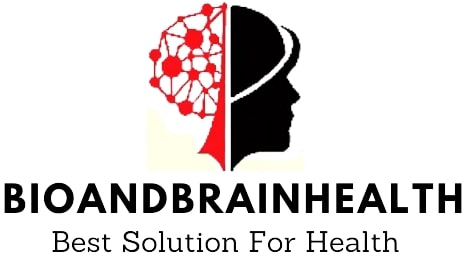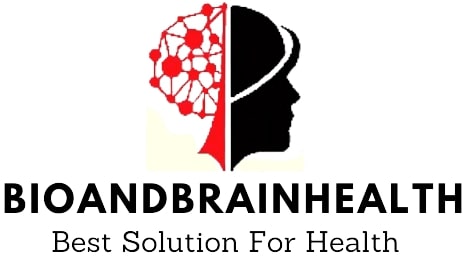Childhood Trauma And Chronic Illness It’s been long suspected that there is a connection between childhood trauma and chronic illness, but a recent study provides concrete evidence of this link.
The research revealed a positive correlation between childhood trauma and the likelihood of developing chronic diseases, including diabetes, heart disease, and arthritis.
This research provides valuable insight into the role of early experiences in developing chronic illness and could lead to new ways of preventing and treating these conditions.
There’s a lot of research on the connection between chronic illness and childhood trauma, and it seems like more and more studies are popping up every day.
But what about the studies? Are these two linked? If individuals have encountered both situations, what measures can we take to assist them?
This post will explore some of the latest research on this topic and suggest managing chronic illness in people who have also experienced childhood trauma.
Introduction
Items our readers will like. In addition, we may get a profit if you buy through our links.
We know that childhood trauma can lead to adult mental and physical health difficulties.
A vehicle accident or violent attack, for example, can cause sadness, anxiety, and PTSD in addition to physical damage.
However, what about the impact of traumatic experiences throughout childhood?
In recent years, there has been a correlation established between adverse childhood experiences (ACEs) and a broad spectrum of diseases.
1. ACEs in detail:
ACEs are adversity in childhood: receiving or seeing abuse, neglect, and other forms of domestic dysfunction.
Based on research conducted by Kaiser in 1998, several adverse childhood experiences (ACEs) significantly increase the likelihood of developing adult ailments such as cardiovascular disease, cancer, chronic respiratory illness, and liver disease.
Other research has linked high ACE scores to autoimmune disorders such as rheumatoid arthritis, frequent headaches, sleeplessness, melancholy, and anxiety.
In addition, there is evidence that “traumatic toxic stress” can alter the immune system.
Extreme emotional stress is thought to cause physical changes in the body.
PTSD illustrates this hypothesis. Abuse, neglect, accidents, disasters, war, and more cause PTSD. The brain’s structure and function change.
PTSD most impacts the amygdala, hippocampus, and ventromedial prefrontal cortex. You can use these places to organize your memories.
When they fail, it causes flashbacks and hypervigilance, keeping your brain alert for danger.
Trauma stress in children creates alterations comparable to PTSD. In addition, trauma can permanently increase a child’s stress response system.
Increased inflammation from stress can induce or trigger autoimmune disorders and other problems.
People who have undergone physical or psychological trauma are more likely to engage in unhealthy coping techniques like smoking, substance misuse, overeating, and hypersexuality. Along with an inflammatory reaction, these activities can put patients at risk for certain illnesses.
Childhood Trauma and Chronic Illness
2. What the research says The CDC-Kaiser study is not the only recent study to examine early-life trauma and improve outcomes for people exposed to it.
Much study has focused on physical trauma and chronic illness, but now researchers are investigating psychological stress as a predictor of chronic illness later in life.
For example, a 2010 study in Clinical and Experimental Rheumatology compared the prevalence of fibromyalgia among Holocaust survivors to a control group of peers.
The study indicated that Holocaust survivors had double the risk of fibromyalgia.
What disorders might childhood trauma cause? Right now, it’s unclear.
Many illnesses, primarily neurological and immunological disorders, have no recognized origin, but ACEs are increasingly implicated in their development.
There are now clear correlations between PTSD and fibromyalgia. In addition, anxiety and despair are also linked to ACEs.
Effects of Early Life Trauma on Long-Term Health Conditions Proximity to One’s Residence Based on the Adverse Childhood Experiences (ACE) research, individuals who have had a more challenging upbringing are more likely to have a higher ACE score, which in turn increases their susceptibility to numerous health issues in the future.
This type of research fascinates and intrigues me. As a child abuse and neglect survivor, my ACE score is 8 out of 10.
The potential connection between asthma and fibromyalgia and the early trauma I experienced remains unclear. Nevertheless, the mistreatment inflicted upon me resulted in the development of Post-Traumatic Stress Disorder (PTSD), a condition that may have a profoundly incapacitating impact.
I continue to have hypervigilance even years after severing all communication with my abuser, who happens to be my mother. I am hyperaware of my surroundings, always looking for exits. I notice tattoos and scars that others may miss.
Then there’s a rewind. The stimuli that provoke a reaction in me on one occasion may not elicit the same response on a subsequent occasion. My rational brain assesses the situation and finds no immediate risk. Unfortunately, my PTSD brain takes a lot longer to find that out.
Meanwhile, I can recall abuse scenes vividly, even smelling the place where they occurred or feeling the impact of a beating.
My body recalls everything about these situations, while my brain makes me relive them. An attack can last days or hours.
Given that total-body response to a psychological incident, it’s easy to see how trauma might impact more than just mental health.
Childhood Trauma And Chronic Illness
4. Limitations of the ACE criteria:
The ACE criteria are criticized for being overly limited. For example, you must be five years older than the abuser to say yes in a section about molestation and sexual assault.
However, many forms of child sexual abuse occur outside these boundaries.
The ACE questionnaire does not yet measure systemic oppression (such as racism), poverty, or childhood chronic or debilitating illness.
Moreover, the ACE test does not compare bad and positive childhood events.
Despite the trauma, studies on public health According to Trusted Source, supportive social relationships and communities can improve mental and physical health.
After all, I had a rough childhood. I grew up instead alone, with only my family as my community.
But I had a great-grandmother who adored me. Then, unfortunately, Katie Mae died of MS complications when I was 11. But she was my person until then.
Long before I got sick, I looked forward to seeing Katie Mae. We both believed we understood one another in a way no one else could.
She instilled in me a lifetime enthusiasm for studying and offered a relatively safe environment for me to thrive in.
Despite my struggles, my worldview would be very different without my great-grandma—and far more damaging.
Childhood Trauma And Chronic Illness
5. Confronting ACE in a clinical setting:
While additional study is required to identify the association between ACEs and chronic illness completely, physicians and patients can take steps to understand their health histories better.
Starting with every good visit—or better yet, any visit—healthcare providers can ask about past physical and mental stress.
According to Cyrena Gawuga, Ph.D., co-author of a 2012 study on early life stress and chronic pain syndromes, children’s health is undervalued in clinical settings.
“Even simple measures like the ACE or simply asking might make a big difference — not to mention the possibility for trauma-informed prevention.”
Gawuga added that more research is needed to determine how socioeconomic position and demography influence ACE categories.
However, providers must be trauma-informed to assist people who disclose traumatic childhood events properly.
It means being more honest about our experiences as children and teenagers, which can be difficult for people like me.
Survivors often feel ashamed of their abuse or their reactions to trauma. I’m pretty open about my abuse in my community, but not so much with my healthcare providers outside of treatment.
Talking about these things can lead to further challenging questions.
For example, my neurologist recently questioned me if any recent occurrences had damaged my spine. Sure, I said, then had to elaborate.
But unfortunately, explaining what happened made me emotional, and I didn’t want to be there.
Mindfulness activities helped me cope with challenging emotions. Meditation, in particular, has been demonstrated to lower stress and improve emotional regulation.
The meditation apps I like are Buddhify, Headspace, and Calm. The pain and chronic illness components of Buddhism were beneficial.
The Impact of Childhood Trauma on Chronic Illness The number is
6. What is the subsequent course of action?
Although ACEs have imperfections, they pose a significant threat to public health. Fortunately, ACEs can often be avoided.
The Centers for Disease Control and Prevention (CDC) advises state and local authorities on violence prevention, educational institutions, and people.
It can prevent ACEs by creating safe and supportive environments for children, but they can also be addressed by improving physical and mental healthcare access.
What is the most significant change? First, patients and doctors must take childhood trauma more seriously.
That way, we can better understand the link between illness and trauma and possibly prevent future health concerns in our children.
Childhood Trauma And Chronic Illness:
A Final Thought
The findings of this study provide valuable insight into the role of early experiences in the development of chronic illness.
It may also help prevent and treat chronic disorders. To better comprehend this matter, kindly go to our website.









